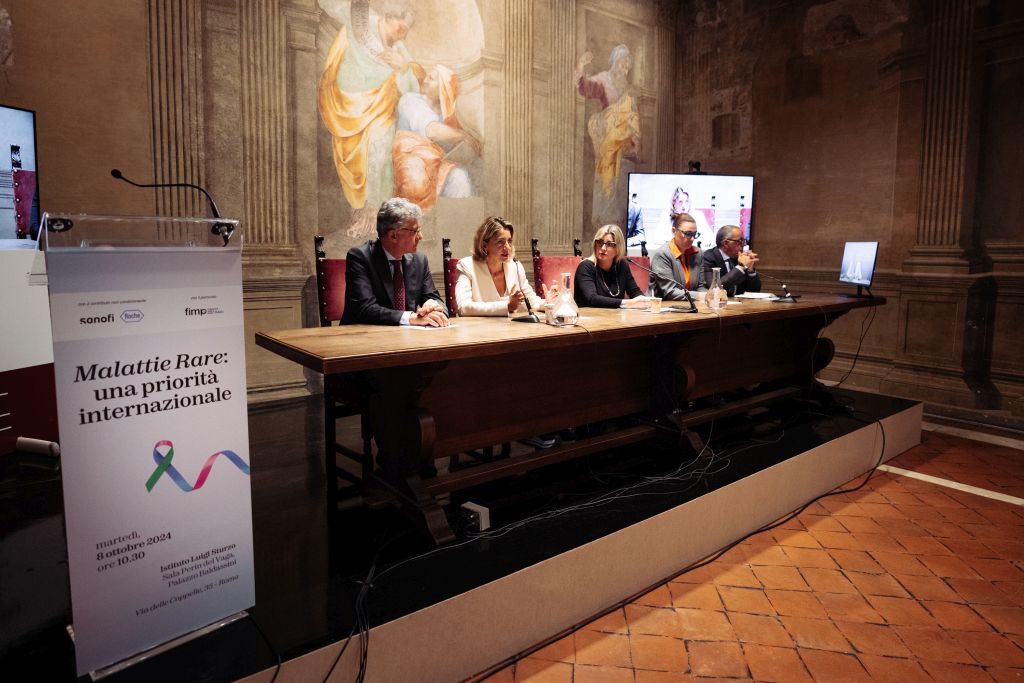ROME (ITALPRESS) – A conference entitled “Rare Diseases: an International Priority” was held today in Rome, twenty-four hours before the start of the G7 Health, which will bring together health ministers and related delegations to discuss the main challenges in the health field. At the same time, representatives from Parliament, the Istituto Superiore di Sanità, clinicians, companies and patient associations took stock of the challenges related to rare diseases, highlighting the importance of making early diagnoses, including with reference to emergency medicine, and allowing equitable access to treatment.Institutional greetings were opened by Senator Raoul Russo, Member of the 10th Commission, who stated that “in the case of rare diseases, it is not acceptable that at the national level a standard line is established, while at the regional level each one acts on its own. Our National Health System must be universal, fair and sustainable. Moreover, in order for change to take place, the action of institutions alone is not enough, but the involvement of civil society is necessary.” The meeting, organized with the nonconditional contribution of Sanofi and Roche, provided an opportunity for a discussion on the goals to be achieved, highlighting the need for support for families and caregivers, promotion of scientific research, and urgent implementation of newborn screening. Although the SNE Working Group endorsed nine new conditions-including lysosomal disorders such as Fabry, Gaucher, MPS1 and Pompe, and neuromuscular disorders such as spinal muscular atrophy-regions continue to move unevenly, creating a gap in the health rights of newborns, who are screened for different numbers of conditions depending on the region.Among the clinical experts, Marta De Santis, delegate of the National Center for Rare Diseases of the Istituto Superiore di Sanità, emphasized, “Rare diseases present a complex and highly disabling symptomatic picture, so early diagnosis is crucial. The earlier treatment is started, the greater the likelihood of improving the management of the disease, the health status of the person and his or her quality of life. Thanks to the approval of Law 167 on expanded newborn screening, there are more than 40 rare diseases detectable at birth in Italy, and the number is expected to increase.” “We are experiencing,” says Professor Giacomo Comi, Full Professor of Neurology at the University of Milan, “two important changes: the latest generation of genetic diagnostics, which has unveiled the molecular basis of many rare diseases, and therapeutic innovation that is changing the natural history of some of them, especially in the neurological field. In this context, expanded newborn screening is a crucial preventive intervention, enabling early diagnosis of diseases with specific therapeutic interventions, ensuring individual and societal benefits, as well as equitable allocation of resources.” Patient associations, represented by Tiziana Nicoletti, head of Cittadinanzattiva’s National Coordination of Associations of the Chronically and Rarely Ill – Cnamc – and Fabio Amanti, Head of Institutional Relations Parent Project Aps, intervened to reiterate the real need to put back at the center of political discussion the fundamental role played by scientific research in improving people’s quality of life. Without adequate investment in research, it will not be possible to shorten the time to diagnosis nor to develop increasingly effective therapies. The Civic Organizations also expressed the need for a concrete commitment by the institutions to ensure universal access to care and treatment, finally overcoming regional and international inequalities. Precisely with reference to the global scenario, in fact, there are too many differences in treatment approval procedures among regulatory agencies, thus causing differences in access to treatments for patients suffering from the same Rare Disease depending on their country of origin.
– press office photo Esperia Advocacy -(ITALPRESS).

